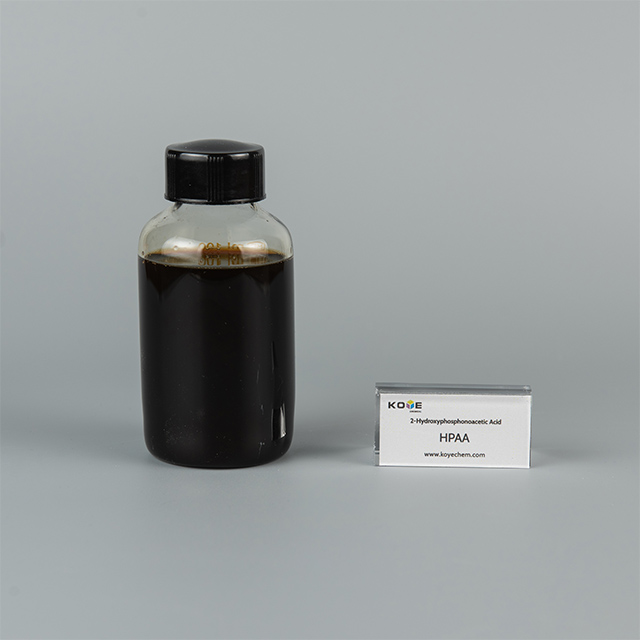HPAA-effectively preventing scale formation and maintaining system efficiency
 Jan 10, 2024|
Jan 10, 2024| View:174|
View:174|HPAA, or Hydroxyphosphonoacetic Acid, is a highly effective water treatment chemical used in various industrial applications. With the CAS number 23783-26-8, HPAA exhibits exceptional scale and corrosion inhibition properties. Often used in combination with HEDP (CAS number 4721-24-8), HPAA provides synergistic effects for optimal performance and extended equipment lifespan. It is widely used in cooling water treatment, boiler water treatment, and oilfield applications. HPAA's unique properties make it a reliable choice for maintaining efficient water systems.

1.Application Notes:
HPAA is chemically stable, hard to be hydrolyzed, hard to be destroyed by acid or alkali, safety in use, no toxicity, no pollution. HPAA can improve zinc solubility. Its corrosion inhibition ability is 5-8 times better than that of HEDP and EDTMPA.Na . When built with low molecular polymers, its corrosion inhibition 5 effect is even better.
2.Recommended Uses:
It is mainly used as cathode corrosion inhibitor in oilfield refill water system, in fields such as steel & iron, petrochemical, power plant and medical industries. When built with zinc salt, the effect is even better.
3.Description & Application:
Widely used in iron and steel, petrochemical, power, pharmaceutical and other industry scale, the corrosion of recycle cooling water system, suitable for low hardness of water quality in south China HPAA can be widely used in iron and steel, petrochemical, power, pharmaceutical and other industry scale, the corrosion of recycle cooling water system, generally as a corrosion inhibitor with zinc salt, low hardness, water quality is applicable to the south of China and has scale effect.
In conclusion, HPAA (2-Hydroxy Phosphonoacetic Acid) is a widely used phosphonate compound with excellent scale and corrosion inhibition properties. It finds applications in water treatment, cooling systems, and industrial processes, effectively preventing scale formation and maintaining system efficiency.








